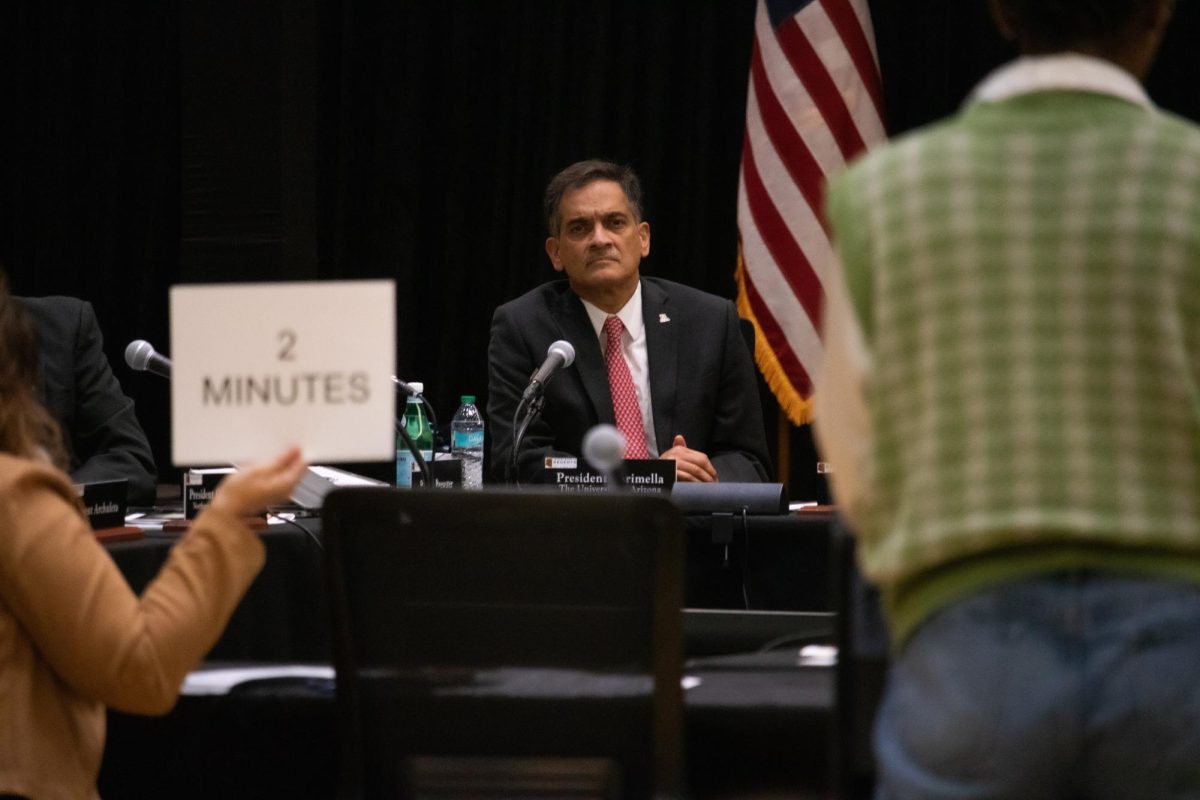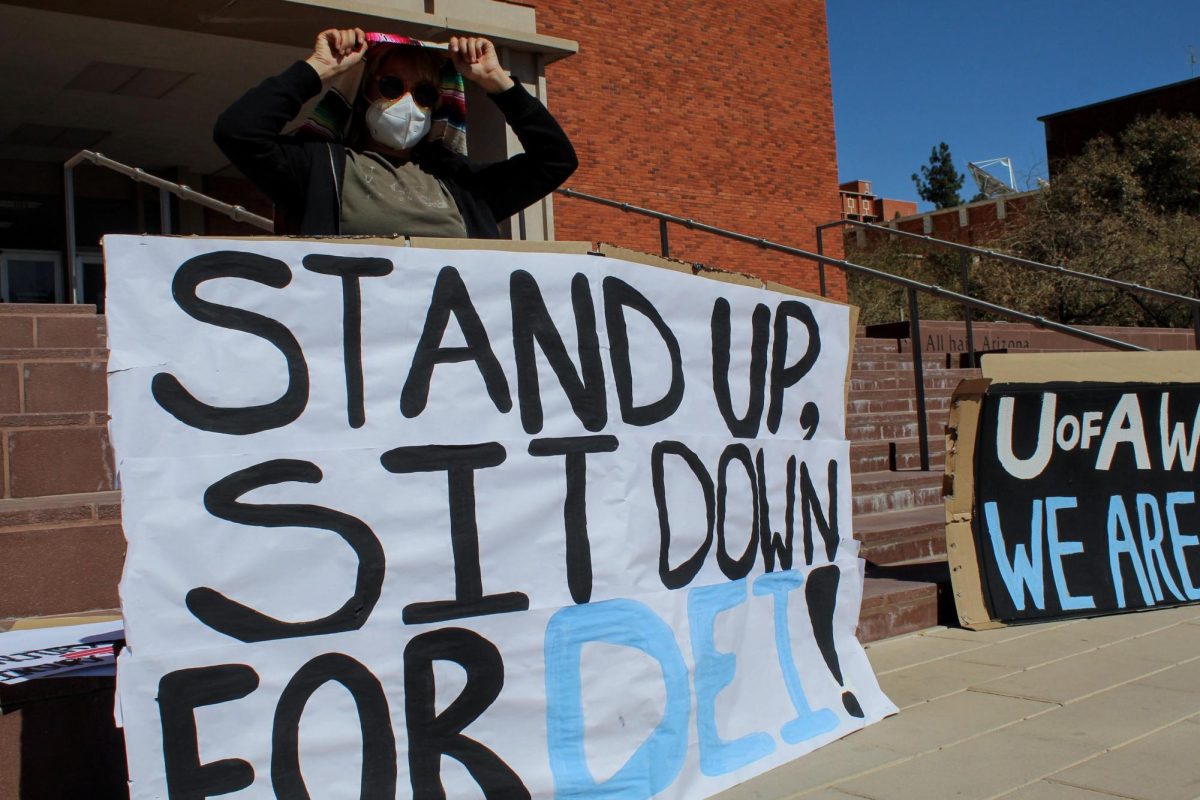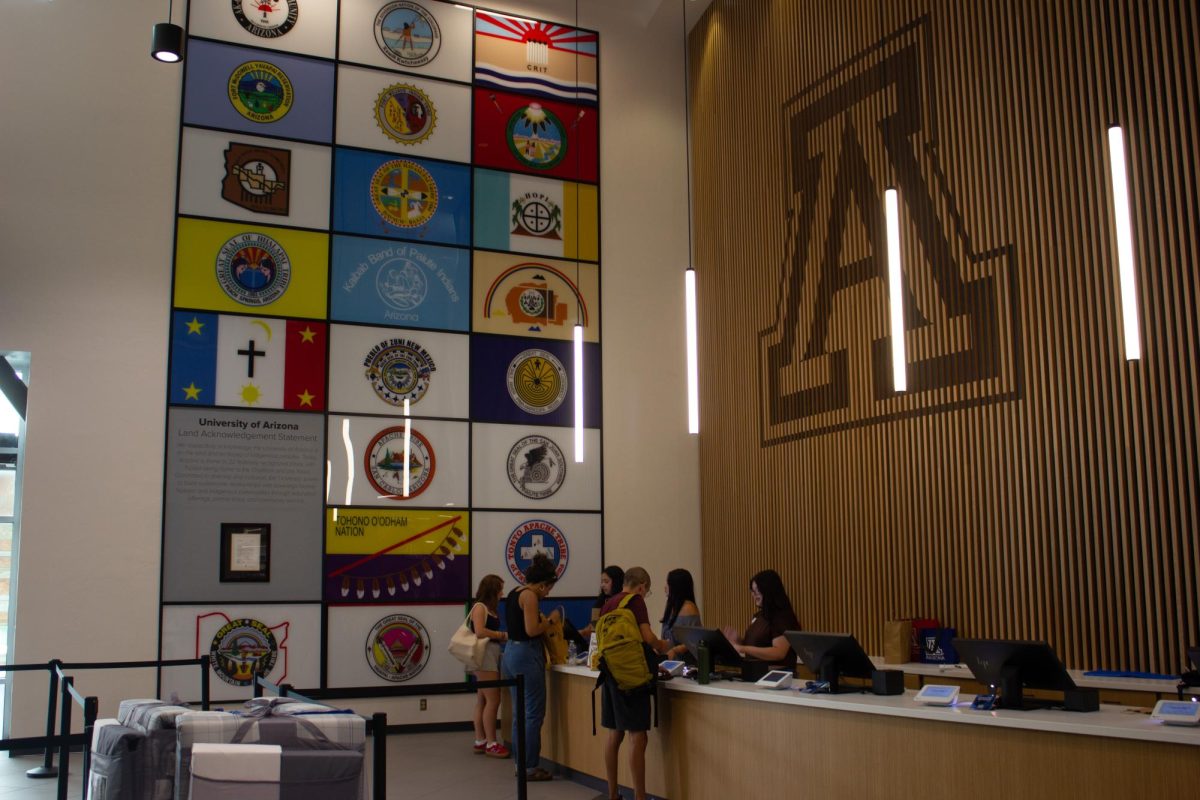The Arizona Board of Regents held its first meeting at the University of Arizona on Nov. 21. University President Suresh Garimella, who took office as the institution’s 23rd president in October, began the meeting with optimism for the future.
Financial Updates
This ABOR meeting follows the University of Arizona’s ongoing efforts to cut costs after former Chief Financial Officer Lisa Rulney disclosed a significant deficit in the university’s cash reserves in November 2023.
The current CFO, John Arnold, discussed ways the UA is trying to in improve the institution’s finances. The university is projected to end the fiscal year 2025 with 76 days of cash on hand—an improvement from nine days in the original budget projection in June.
There is still not a set plan to bring days of cash on hand to expected levels Arnold said. However Arnold added that there is expected to be a more thought-out plan to increase days of cash on hand by the next ABOR meeting.
According to Arnold measures such as a hiring freeze, centralizing departments like Information Technology and Human Resources and not providing the same amount in merit aid were implemented to control spending. However, hiring freezes stopped in July. Departments now also have to submit monthly expenditure plans and staffing proposals to align with the budget.
Garimella acknowledged the strain these adjustments have caused university staff and faculty.
“Obviously last year and this year we had a deficit. By the end of this year, our every intention is for us to zero out that deficit. It’s important for the board to recognize and for everyone to hear me say that these kinds of things have a very challenging effect on faculty morale and on staff morale,” Garimella said.
Garimella said that he hopes for faculty and staff raises in the next year.
Many staff and faculty expressed their concerns during the call to the audience. Gary Rhoades, chair of the General Faculty Financial Recalibration Committee, said he was concerned about the effects of budgetary adjustments on academic departments.
“It does not protect the academic core to do 3 to 5 percent cut scenarios across the board for all academic units that’s at the same level as it is for support units, particularly when 95 percent of the overspending is accounted for by 14 percent of the units, which are mostly not academic units. It does not protect the academic core to have fewer faculty, fewer support staff and fewer graduate teaching assistants for more students. It does not serve those students, it does not ensure their academic success or enhance our research mission,” Rhoades said.
The UA welcomed its largest and most diverse first-year class this year, with over 9,300 students—nearly 5 percent more than in 2022 and 10 percent more than in 2021. Contingent faculty said that they’re feeling the pressure of having too many students and seeing no salary increases.
Nataliya Apanovich is a lecturer in sustainable built environments and is in her third year of teaching at the UA. During public comment, she shared that she is teaching four courses this semester, including two with both in-person and online sections. Despite managing 134 students, her salary remains the same.
“Decreased service among contingent faculty threatens shared governance and our ability to influence the decision-making that directly impacts our work and the quality of education we can offer,” Apanovich said.
She continued that some contingent faculty are tasked with roles such as program chairs or committee leaders also without appropriate compensation.
According to UA News, the university plans to close the remaining $65 million budget deficit by fiscal year 2026 and, “the university employment headcounts and payroll expenditures have returned to levels comparable to the first quarter of fiscal year 2023.”
Legislative Updates
ABOR has refined its policy categories ahead of the new legislative session, condensing six previous policy categories into two policy positions: securing sustainable revenue for the universities and protecting the board’s interests.
Securing sustainable revenue involves issues relating to the board’s budget request, opposing reductions in state funding and preserving authority over tuition and fees. Protecting board interests has to do with ensuring the board retains its legal authority to fulfill its duties.
In regards to the political landscape Thomas Adkins, the Vice President of Government Affairs and Community Relations at ABOR said that on a macro level in the legislature, things are more or less going to be the same for the board.
“The Arizona House of Representatives has a Republican majority as it did before and the Arizona State Senate has a Republican majority as it did before,” Adkins said.
As for the state budget Adkins said there is modestly positive news. Arizona is not facing a deficit; instead, there is a small structural surplus. Governor Katie Hobbs’ budget proposal, expected in January, will provide more clarity of the impacts on higher education funding.
Follow the Daily Wildcat on Instagram and Twitter/X











